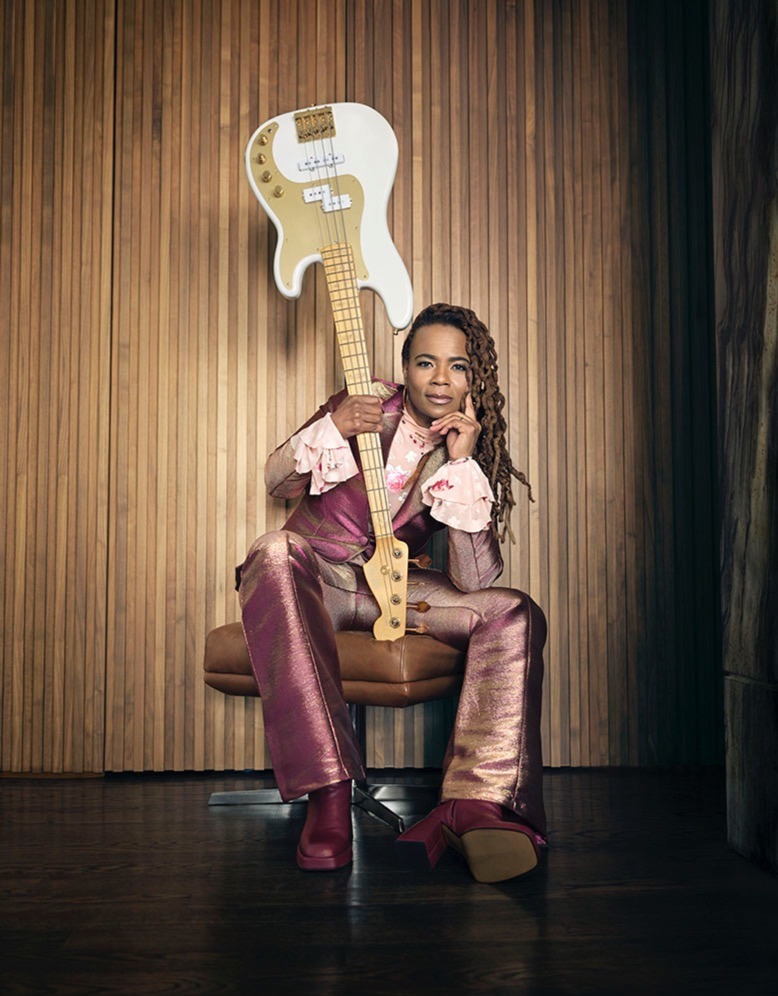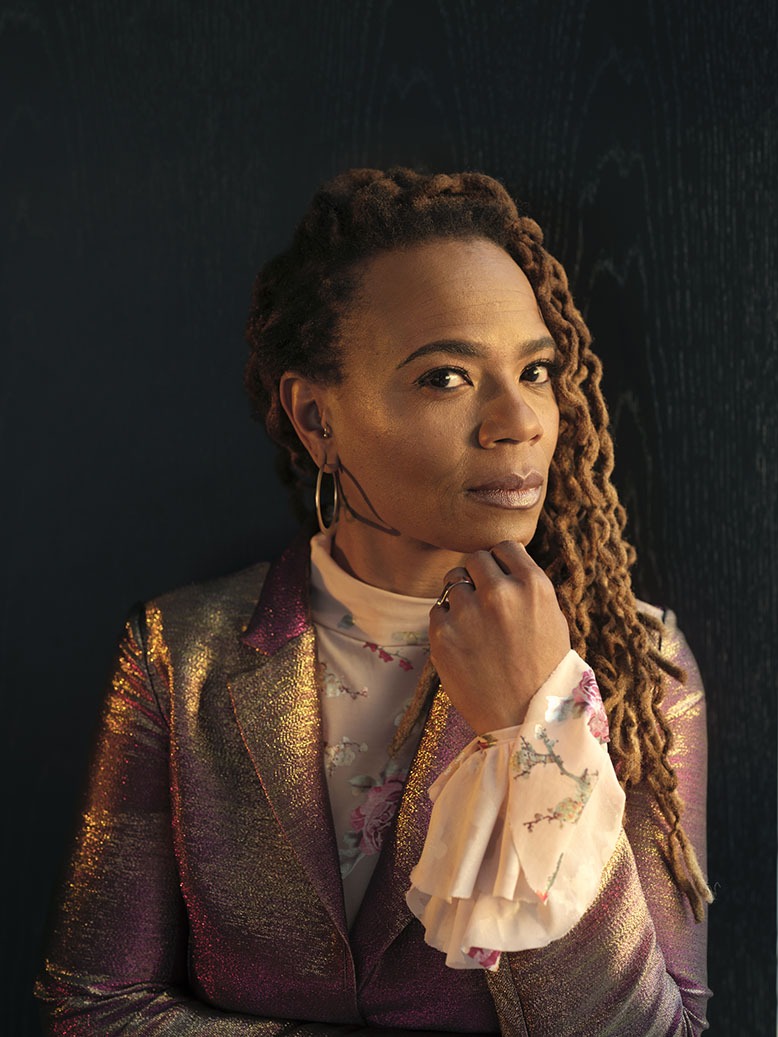
Divinity Roxx’s one-woman show kicks off this May at the Crossroads Theatre Company. Photo by Chris Buck
Divinity Roxx is a Grammy-nominated recording artist, composer and musician who performed in Beyoncé’s all-female band. Now, she’s trying something entirely new: acting.
Her one-woman show, Starchild: The Ballad of Debbie Walker, premieres on May 24 at the Crossroads Theatre Company in New Brunswick. The show is set to run until June 4.
Roxx developed the script and wrote the songs. She says it’s “the origin story of the superhero Divinity Roxx. Superheroes transform spaces, places and people, and I think I do that in my music. Every superhero has an origin story, and it’s not all glitzy and glamorous.”
“It’s the most challenging thing I’ve ever done,” says Roxx, an internationally renowned bassist. “And I don’t think I’ve ever been this vulnerable before as an artist.”
Born Debbie Walker, Roxx says her mother referred to her as her starchild. “I think it was really important for her to build confidence at an early age [and] for me and my siblings to feel special in a world that would chip away at that confidence.”

“I don’t think I’ve ever been this vulnerable before as an artist,” Roxx says of her latest pursuit. Photo by Chris Buck
When she was about 10, Roxx was first introduced to the name Divinity by a local rapper named MC Crush. Roxx looked up the word in the dictionary and saw that it meant “of God,” she says. “I spent years trying to live up to the name—such a big name to carry.”
She attended the University of California, Berkeley for communications, but music kept calling. Roxx started rapping, performing with her hip-hop group, Divinity and the Breakfast Unit. They were about to go on tour and release a record when she ruptured her Achilles tendon.
While recovering, she picked up the bass. At the time, she didn’t know that teaching herself to play the instrument “was going to be the key that opened up the entire world to me,” she says.
Roxx loves the constant challenge the bass presents. There’s a really difficult song, “Teen Town” by Jaco Pastorius, explains Roxx. “Once you get it, man, you feel like you can do anything.”

Roxx’s tough upbringing colors her play. So does forgiveness. Photo by Chris Buck
Roxx experienced some hard times as a child. Growing up during the crack epidemic in Atlanta, she saw her neighborhood and family change. “It always felt like a safe and incredible place. We saw it transform into a dangerous place,” she says. “My mom had succumbed to drugs. My cousins were drug dealers. Living through that and looking for security and being the oldest [child] with all the responsibility—there were a lot of tough times.”
Throughout her play, Roxx delves into forgiveness. “Forgiving of oneself and some forgiving of my mom,” she says. “[Our] relationship is so transformative. There’s a lot of unconditional love [in the show] and really exploring what that is and how you get to that.”
In this production, Roxx also hopes to honor the generations that came before her. “There’s some homage to pay. We can’t let their stories just simply die with them,” says Roxx, who lives in West New York with her wife.
“We want to tell the truth, man. We want to be courageous,” she says. At the same time, “we want to sugarcoat it and we want to make it pretty and neat, but audiences can feel that. If you want people to be deeply moved, you have to go to those places where you are deeply moved.”
No one knows New Jersey like we do. Sign up for one of our free newsletters here. Want a print magazine mailed to you? Purchase an issue from our online store.
